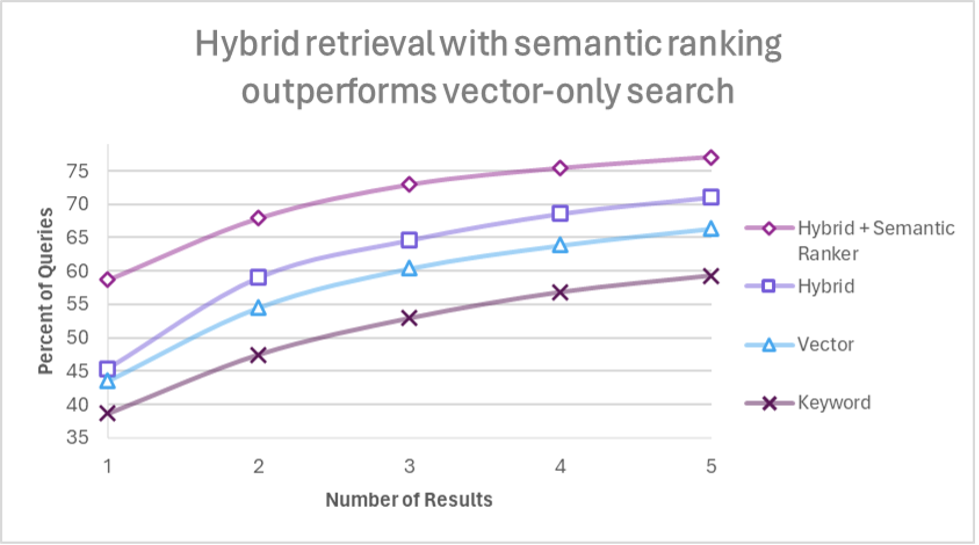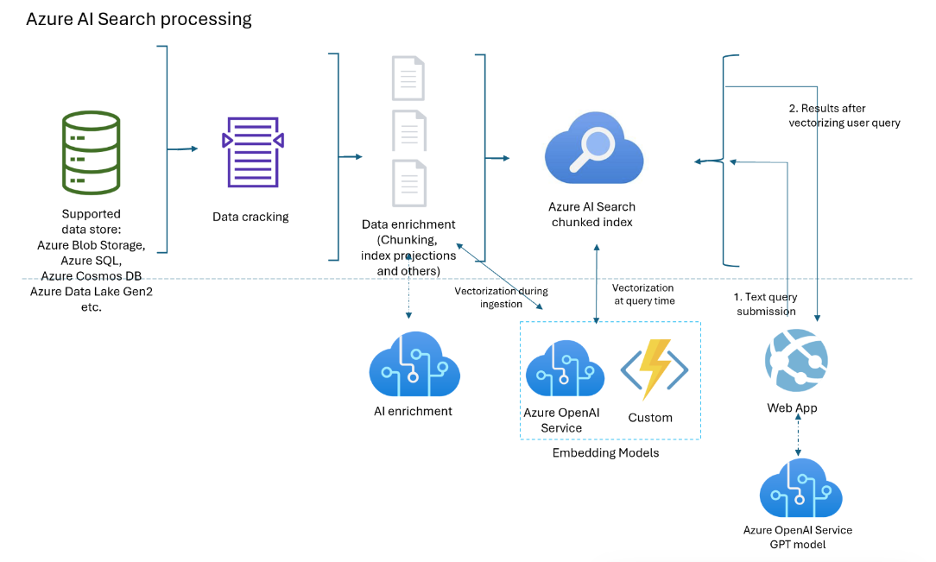
Intelligent Search
Intelligent Search: Insights from Regulations and Public Comments
Author: Reha Malik, Vice President of Data and AI and Shanil Kothari, Software Engineer

July 31, 2024
Abstract
Regulations.gov serves as a critical platform for the public to access and comment on federal regulations and related documents. It also enables policymakers to review public feedback to better inform policy decisions. However, traditional keyword-based search and comment analysis methods often fail to provide comprehensive, relevant, and user-friendly insights. This paper examines the integration of Azure AI Search and Azure AI Language, leveraging hybrid semantic search, sentiment analysis, and AI-generated summaries to significantly enhance the functionality of Regulations.gov. These advancements not only improve search accuracy and relevance but also offer deeper insights into public sentiment and create concise overviews of regulatory documents and public feedback, thereby fostering greater public engagement and more informed decision-making.
1. Introduction
Regulations.gov is the U.S. government’s platform for public engagement in the rulemaking process. It allows individuals to find, review, and comment on federal regulations. Despite its pivotal role, the platform’s traditional keyword-based search functionality often yields suboptimal results, and manual comment analysis is time-consuming and lacks comprehensive insight.
This paper presents our internal attempt at enhancing a public facing website like Regulations.gov by implementing Azure AI Search’s hybrid semantic search capabilities, Azure AI Language for sentiment analysis, and Azure OpenAI GPT-4 for generating AI-driven summaries. The integration aims to modernize the platform, making it more accessible and insightful for users.
2. Existing Challenges
1. Ineffective Keyword Search: Traditional search methods on Regulations.gov often return irrelevant results, requiring users to sift through numerous documents to find pertinent information.
2. Manual Comment Analysis: Analyzing public comments manually is labor-intensive and prone to oversight, delaying the regulatory process and reducing the ability to gauge public sentiment accurately.
3. Information Overload: Users face difficulty in understanding lengthy regulatory documents and comments, which can lead to less effective public participation.
3. Proposed Solution
For the purposes of this research, we evaluated several permutations and combinations to assess the best approach for searching content between vector and semantic searches. We found that using a hybrid combination of semantic and vector search was the best approach as vector search can play a major role in semantic search by analyzing vector positions and distances, which allows our solution to infer semantic relationships (synonyms, related concepts, thematic links) even if exact query words aren’t present. The advantage of using semantic search is that it matches user intent beyond exact word matches and leverages natural language processing (NLP) and machine learning for context.

4. Key Features of the Solution
Hybrid Semantic Search with Azure AI Search:
- Semantic Search: By using Azure AI’s hybrid search capabilities, the platform can understand the context and intent behind user queries and not just their exact occurrence, delivering more relevant results.
- Natural Language Processing: The integration of NLP techniques allows for the interpretation of search queries in a human-like manner, considering synonyms, related concepts, and the overall context. NLP allows both technical and non-technical users to interact effectively with the search engine, and enables the generation of concise summaries of complex documents
Sentiment Analysis with Azure AI Language:
- Automated Sentiment Analysis: Using Azure AI Language, public comments can be automatically analyzed for sentiment, providing regulators with a quick overview of public opinion. Sentiment analysis automatically determines whether a piece of text expresses a positive, negative, or neutral opinion about a product, service, or topic. It helps in understanding and categorizing the emotions expressed in comments, reviews, and other textual content
- Sentiment Visualization: Insights from sentiment analysis can be visualized to highlight trends and significant areas of public concern.
AI-Generated Summaries with Azure OpenAI GPT-4:
- Document Summarization: GPT-4 can generate concise summaries of lengthy regulatory documents, making it easier for the public to understand the essence of regulations.
- Comment Summarization: Summarizing public comments helps regulators quickly grasp the key points and common concerns expressed by the public.
These features result in improved relevance, accessibility, and comprehension of the search results, as well as quick and reliable insights into public sentiment.
5. Evaluation and Results
For the purposes of this research, we evaluated several permutations and combinations to assess the best approach for searching content between vector and semantic searches. We found that using a hybrid combination of semantic and vector search was the best approach as vector search can play a major role in semantic search by analyzing vector positions and distances, which allows our solution to infer semantic relationships (synonyms, related concepts, thematic links) even if exact query words aren’t present. The advantage of using semantic search is that it matches user intent beyond exact word matches and leverages natural language processing (NLP) and machine learning for context.
6. Technical Details
Intelligent Search is built upon Azure AI Search, Azure AI Language, and GPT-4, which are FedRAMP approved service offerings.

7. Benefits of using our approach
- The solution inherits current identity and access management (IAM) controls and security phase gates, allowing it to be seamlessly integrated into govcloud, on-premises, or a hybrid environment.
- The solution is platform agnostic and flexible and can be tailor-made to suit the needs of different hosting environments.
- The solution is anti-hallucination, meaning that it does not use any external sources to enhance its results, but only relies on the content provided by the platform.
- The solution is affordable to build, as Alpha Omega is committed to keeping the production costs low while offering the best-in-class service to the agency partners.
8. Conclusion
Intelligent Search is a significant advancement in the accessibility and utility of government public websites like Regulations.gov, as it moves beyond traditional keyword searches and manual comment analysis. The solution provides more accurate search results, deeper insights into public sentiment, and concise summaries of complex documents, using state-of-the-art AI technologies and greatly enhances the user experience and promotes more effective public participation and informed decision-making in the regulatory process.








